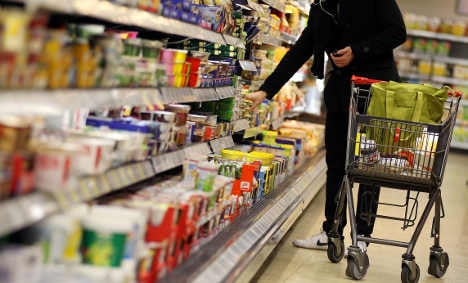Drawn up by the Hamburg Consumer Association and seen by the Süddeutsche Zeitung daily newspaper, the list features well-known brands such as Pampers and Pringles.
Leading diaper company Pampers has reduced the number of disposable nappies in its standard packet four times since 2006. The latest reduction brought the number down to 34 from 37 but the price stayed the same.
“If Procter & Gamble [the US-based company that manufacturers the product] continues in this manner, the packet will be empty in 20 years’ time,” said Armin Valet from the association.
Major brands are particularly guilty of employing such tactics, which critics describe as “hidden price hikes.” Other offending items include washing-up liquid, dishwasher tablets, crisps, sweets and dog food.
The principle is simple: manufacturers reduce contents while keeping the packaging the same or very similar. Consumers often don’t notice the change and go on buying the products in the belief that they’re getting the same as before.
In some cases, prices in real terms have risen by up to 60 percent as a result of the tactics. To put that in context: inflation has only risen by 12 percent in the past seven years.
But there are limits to what consumers will accept. “Manufacturers can’t take this to endless heights,” said Cologne-based management consultant Ulrich Eggert, adding that consumers would not buy products unless they met a certain standard.
Other manufacturers have in fact increased their contents while upping their prices disproportionately. A tube of Pringles now contains 190 grams of crisps, up from 165 grams. However the price per 100 grams has risen by almost a third (from €0.96 to €1.26).
Similarly, dog food brand Frolic are charging almost €0.10 more per 100 grams than before it increased its standard quantity.
Manufactures often justify price hikes by pointing to other improvements, say experts. “Bigger quantities, better quality and a nicer appearance are intended to distract from the price rises,” Eggert told the Süddeutsche Zeitung.
Pampers boasted “product improvements” including the “urine indicator” in the New Baby range, which the company says required “significant investment.” Dishwasher tablet manufacturer Henkel also justified its price rises by saying that over the years their product has developed to “offer consumers better performance.”
But consumer watchdogs are warning consumers to wise up on hidden tactics which are getting them to pay more – for less.
The Local/kkf



 Please whitelist us to continue reading.
Please whitelist us to continue reading.
Member comments